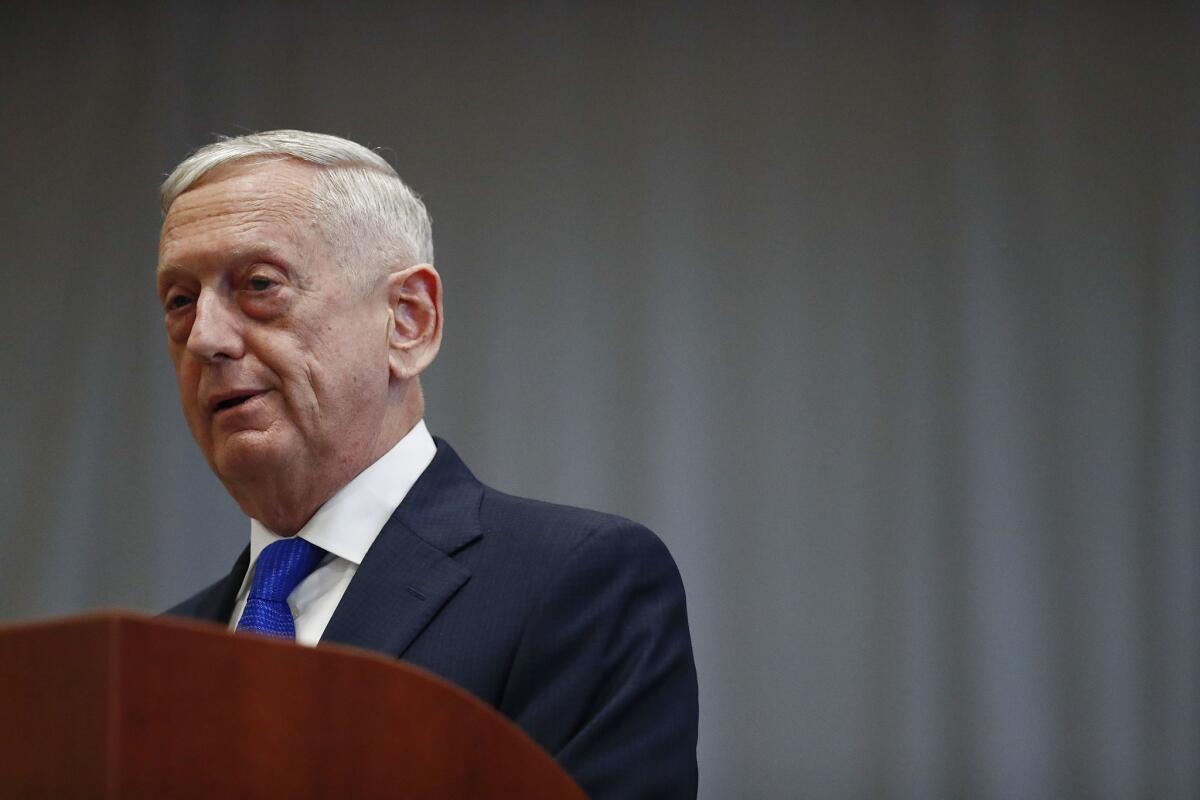Op-Ed: Did you notice? Trump just tried to turn the U.S. armed forces into his personal domestic police force

Ever the opportunist, President Trump within the last several days has used the social unrest triggered by the police killing of George Floyd to mount an attack on the Constitution itself. His specific offense: exploiting his authority as commander-in-chief to try to convert the armed forces of the United States into a personal instrument for enforcing domestic order. Allow this effort to succeed and the constitutional order created in Philadelphia in 1787 will cease to exist.
Citizens already on overload as they attempt to cope with ongoing crises related to public health, a faltering economy, and endemic racial injustice may not appreciate the gravity of the situation. We can be thankful that thoughtful — and patriotic — very senior retired military officers are speaking up to alert the public to the danger Trump has created.
The founders believed that military power, especially in the form of a large standing army, was antithetical to liberty. “A standing military force, with an overgrown Executive,” wrote James Madison, “will not long be safe companions to liberty.” For many decades, Americans took Madison’s dictum seriously.
After World War II, however, they set aside such concerns. Persuaded that the nation’s very survival required it to create and maintain a massive military establishment, Americans exempted themselves from Madison’s warning. Over time they became confident — perhaps too much so — that mechanisms for reconciling a massive military and individuals’ rights and freedoms were securely in place. Might and liberty could march hand-in-hand.
Three factors made this at least temporarily workable. The first was the role assigned to the postwar military establishment. It existed to avert and if need be to fight wars in distant places. Its domestic responsibilities were minimal. The second was recognition that the authority of the commander in chief, while considerable, was not absolute. The oversight exercised by Congress placed limits on presidential prerogatives. Finally, and most importantly, the military professional ethic to which members of the officer corps subscribed ensured that their ultimate loyalty was to the Constitution, not to the individual temporarily residing in the White House.
President Trump has now mounted an attack on each of these. He appears intent on assigning to regular troops broad responsibilities to function as a domestic police force. He refuses to acknowledge any limits on his authority as president. On that score, he is actively or passively abetted by supine members of his own party in the Senate and House of Representatives. Particularly despicable is Arkansas Republican Sen. Tom Cotton, who urged Trump, in an op-ed article, to deploy several army combat divisions to pacify American cities, offering “no quarter for insurrectionists, anarchists, rioters and looters.” Trump tweeted a response: “100% correct. Thank you, Tom!”
Perhaps most insidiously, Trump is engaged in undermining the military profession itself. His clear purpose is to transfer the primary loyalty of the officer corps from the Constitution to his own person. How else to explain Gen. Mark Milley, chairman of the Joint Chiefs of Staff, compliantly tagging along on the president’s show-the-Bible photo op earlier this week in Washington’s Lafayette Square. By doing Trump’s bidding, Milley allowed himself to be publicly emasculated. Except as a presidential lackey, he has lost all credibility. That he retains his job is convenient for Trump, but a disgrace to the officer corps.
So we must be grateful to the retired officers who are speaking out against these outrages. Gen. James Mattis, a well-regarded former Marine and Trump’s first Defense secretary, has been particularly vehement and notably effective. In a widely publicized letter, he writes: “We know that we are better than the abuse of executive authority that we witnessed in Lafayette Square. We must reject and hold accountable those in office who would make a mockery of our Constitution.”
Just so. But it is Mattis’ poignant conclusion that especially demands reflection. “Only by adopting a new path — which means, in truth, returning to the original path of our founding ideals — will we again be a country admired and respected at home and abroad.”
Yet the “original path” charted by Madison and the other founders was a path that defined America’s essential purpose in terms other than amassing and employing armed might. The nation as first envisioned was not a superpower perpetually at war. In that sense, the present civil-military crisis fecklessly instigated by the president should prompt all Americans to consider whether that “standing military force, with an overgrown Executive” just might define the root of our problems today.
Andrew Bacevich is president of the Quincy Institute for Responsible Statecraft, a retired army colonel and professor of history and a contributing writer to Opinion.
More to Read
A cure for the common opinion
Get thought-provoking perspectives with our weekly newsletter.
You may occasionally receive promotional content from the Los Angeles Times.










